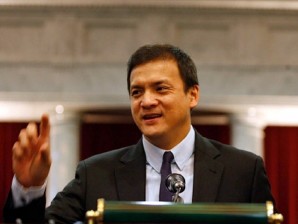The Supreme Court on Wednesday ordered the Commission on Elections (Comelec) to file its comment to one of three petitions filed by various parties questioning the Comelec’s purchase of P1.8 billion worth of voting machines that were used during the 2010 elections.
Jose Midas Marquez, the high court’s administrator and spokesperson, said the tribunal has directed the Comelec to file within 10 days its comment on the motion filed by a group led by Davao City Archbishop Fernando Capalla.
In a text message to reporters, Marquez said two other petitions seeking to stop the Comelec’s acquisition of some 82,000 precinct count optical scan (PCOS) machines would be taken up in the high court’s en banc session on April 17.
The Comelec said it intends to use the voting machines it was purchasing from Smartmatic Corp. in the 2013 mid-term elections.
2010 glitches
Capalla was joined in the petition by Omar Ali, former mayor of Marawi City, and Mary Anne Susano, former Quezon City representative.
Capalla et. al asked the high court to issue a temporary restraining order, arguing that Smartmatic and its local partner, Total Information Management Corp. (TIM), should have been made to answer for the alleged glitches in the 2010 automated elections.
The group said the problems caused by the allegedly “defective” PCOS machines amounted to “millions of pesos and maybe even disenfranchisement of voters.”
“When Smartmatic-TIM should have been reprimanded for these defects… Comelec even (rewarded) them by favoring the purchase of these defective PCOS machines,” they said.
Apart from the Capalla group, the Automated Election System (AES) Watch, led by former Vice President Teofisto Guingona Jr., and the Solidarity for Sovereignty (S4S) of Ma. Linda Montayre have also filed their own pleadings.
In its 18-page petition for certiorari, the AES Watch said the contract was a “clear and patent violation” of the law on public bidding of government projects and contracts.
